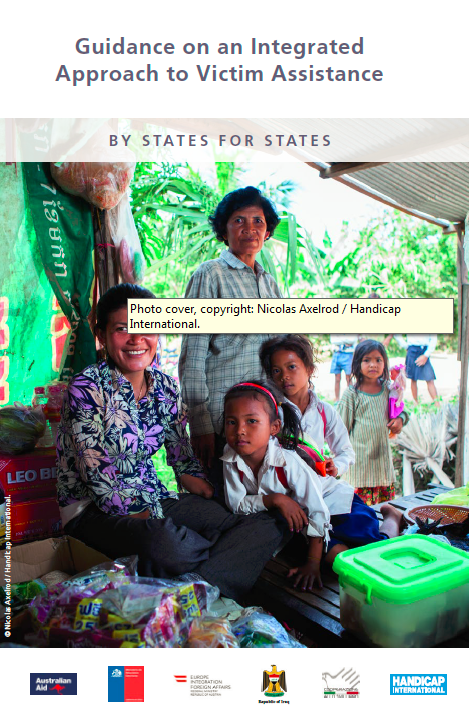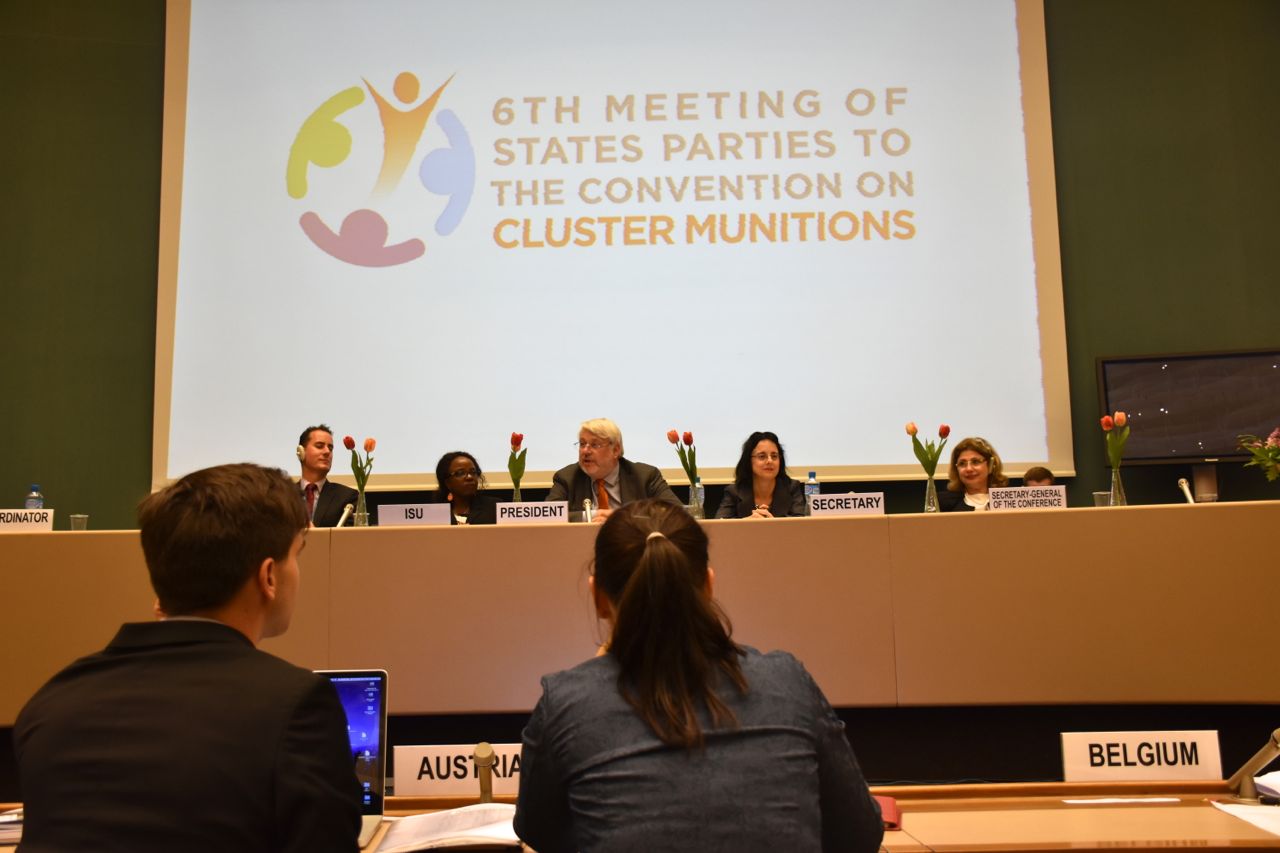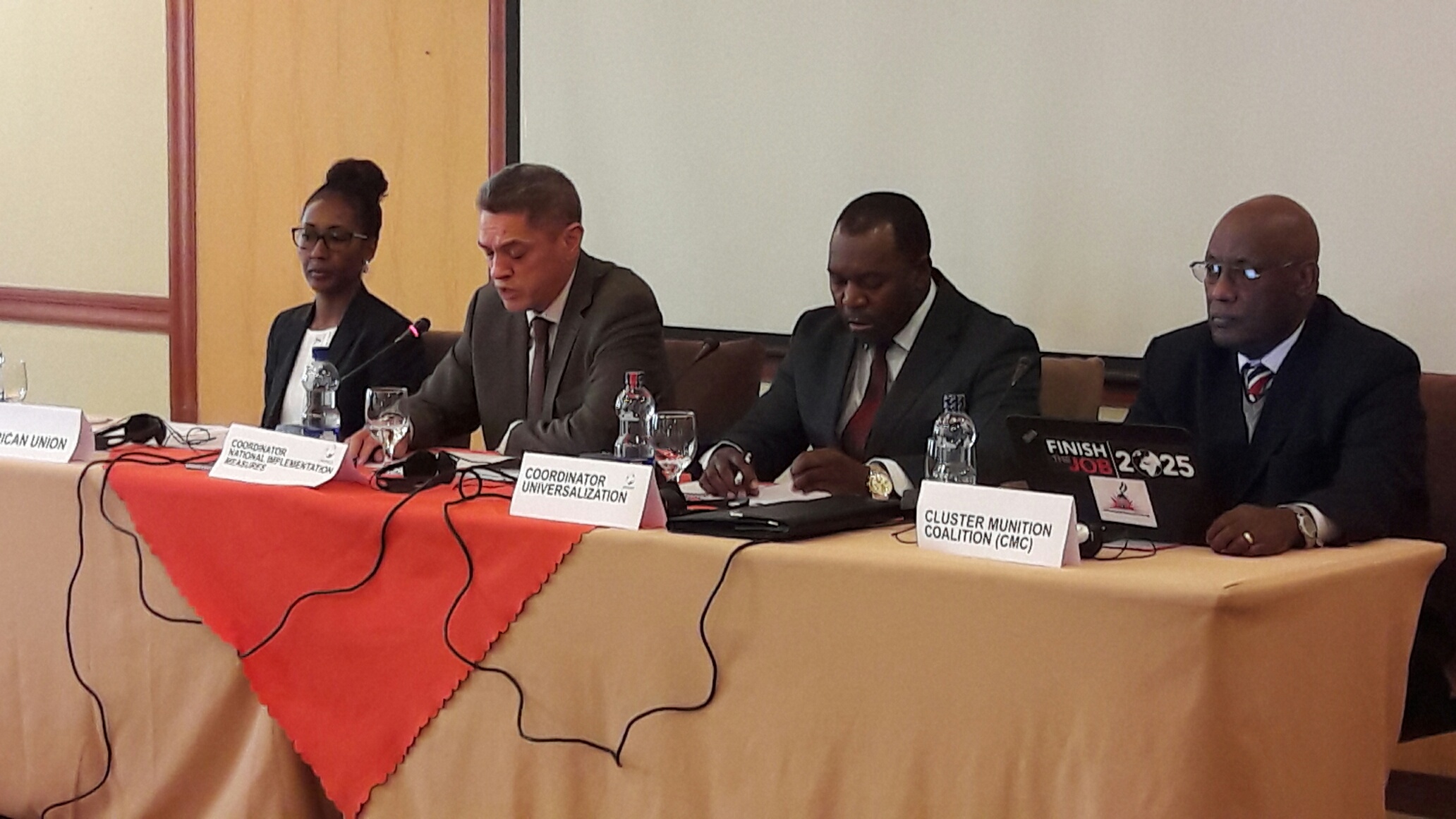As the current Presidency of the CCM, Germany is pleased to announce that Mozambique as a State Party to the CCM has declared fulfillment of its obligation under article 4 pertaining to clearance and destruction of Cluster Munitions. We would like to thank the Government of Mozambique for its dedicated compliance with CCM commitments which has made clearance of affected areas possible well ahead of schedule. We would also like to thank all national and international institutions involved in this process, notably the Norwegian Government and Norwegian Peoples Aid for having provided funding and technical expertise in this process.
Adoption of UNGA Resolution on the implementation of the CCM
On the occasion of the UNGA vote on resolution L.22 “Implementation of the Convention on Cluster Munitions”, the Presidency of the CCM would like to state the following:
As the Presidency of the CCM, Germany is pleased to observe that the positive moment for the Cluster Munitions Convention and its objectives has continued to build up with this year´s vote in the UN General Assembly. 141 votes in favor with only 2 votes against mean that the international norm established on the basis of the convention as well as its humanitarian impact are gaining strength.
We would like to thank all supporters of the resolution for their positive vote and call upon those who did not yet vote in favor to engage in a constructive process with the convention. As the current Presidency, Germany stands ready to render all necessary assistance in that regard.
7MSP Save the date
SEVENTH MEETING OF STATES PARTIES TO THE CCM (7MSP)
Geneva, 4-6 September 2017
The President of the Seventh Meeting of States Parties (7MSP) to the Convention on Cluster Munitions, Ambassador Michael Biontino of the Federal Republic of Germany, is pleased to inform that the dates and venue of the 7MSP have been set and will take place from 4 to 6 September 2017 in Room XIX of the Palais des Nations in Geneva. Switzerland.
New Guidance on an Integrated Approach to Victim Assistance
On Tuesday 29 November, at a side event during the 15th Meeting of States Parties of the Anti-Personnel Mine Ban Convention (APMBC) in Santiago, the Convention on Cluster Munitions (CCM) Coordinators for 2016 and 2017 on Victim Assistance (Australia, Chile and Italy) and International Cooperation and Assistance (Austria, Iraq and Australia) launched the publication Guidance on an Integrated Approach to Victim Assistance.
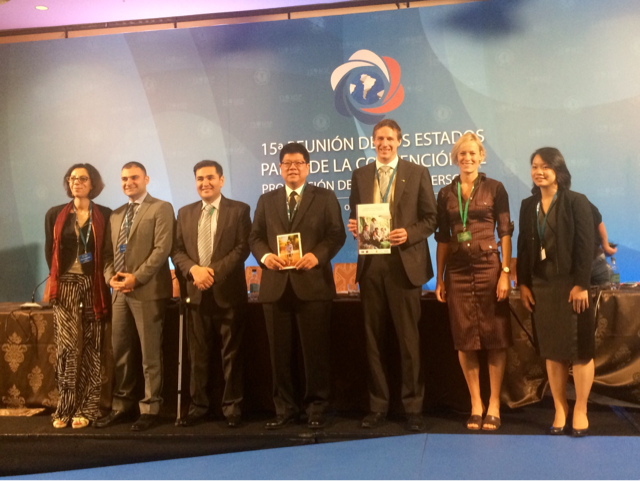
Panelists and representatives of the CCM Coordinators on Victim Assistance and Cooperation and Assistance and APMBC Victim Assistance Committee at the launch of the Guidance on an Integrated Approach to Victim Assistance and the Guidance on Victim Assistance Reporting.
The side event was held jointly with the Victim Assistance Committee of the APMBC, which also launched a publication, Guidance on Victim Assistance Reporting in parallel. The joint event demonstrated the complementarity of efforts to implement commitments on victim assistance under the CCM, the APMBC and Protocol V of the Convention on Certain Conventional Weapons (CCW), and that it is possible to develop common approaches to victim assistance issues across the conventions, with the ultimate aim of helping States to improve the quality of life and uphold the rights of victims.
The disarmament community has long understood that it is essential to realize victim assistance obligations through both specific initiatives, and broader development, human rights, and humanitarian efforts, in order to ensure sustainable support for victims. The need to fulfil victim assistance obligations within broader plans, policies and frameworks is codified in the CCM and reflected in the CCW Protocol V Plan of Action on Victim Assistance, the APMBC Maputo Action Plan and the CCM Dubrovnik Action Plan. This dual approach is called an integrated approach to victim assistance and is rooted in the human rights principle of non – discrimination promoted by the CCM and in the frameworks of the APMBC and CCW Protocol V.
Ideally, realising victim assistance obligations through broader efforts should make specific victim assistance efforts unnecessary. However, while specific victim assistance efforts have been shown to adhere to the principle of non-discrimination by benefiting survivors, other persons with disabilities and indirect victims alike, there is little evidence as to whether survivors and indirect victims are being reached through relevant efforts undertaken within broader frameworks. Victim assistance-specific efforts should be maintained until evidence is produced to show that victims benefit on an equal basis with others from broader efforts.
It seems that while both affected and donor States understand the need for this dual approach in principle, its implementation is complex and requires guidance.
To this end, the CCM Coordinators on Victim Assistance and International Cooperation and Assistance for 2016 and 2017, assisted by Handicap International and with funding provided by the Australian Government, led a multi-stakeholder process in 2016 to develop Guidance on an Integrated Approach to Victim Assistance, for both affected and donor States. The process involved collection of input on national experiences in implementing an integrated approach to victim assistance through a questionnaire, a workshop and an online consultation. Participants in the process included States Parties to the APMBC and CCW Protocol V, as well as the CCM, and representatives of survivors and a range of international and non-state organisations.
From the input received, a range of good practices and national examples of effective implementation by both donor states and affected states were identified, collated and finally published as the Guidance on an Integrated Approach to Victim Assistance. The Guidance is intended to be equally useful in the implementation of the victim assistance commitments set out in the CCM, APMBC and CCW Protocol V.
An electronic version of the Guidance is available here. Hard copies of the Guidance can be obtained from the CCM-ISU or Handicap International.
CCM Quarterly Newsletter
The Convention on Cluster Munitions (CCM) second Quarterly Newsletter for 2016 is out! Click here to read it!
CCM President deeply concerned with recurring use of cluster munitions in Syria
The Presidency of the Convention on Cluster Munitions, the Federal Republic of Germany, issued the following statement on 5th October 2016:
“We are deeply concerned about the recurring news of the use of cluster munitions in Syria, notably during the intensifying bombardments of Aleppo. The use of cluster bombs in densely populated areas is contrary to international humanitarian law and the norms set by this convention.
We call upon the Syrian government to refrain from the use of cluster munitions and to adhere to respective norms and obligations under international humanitarian law.
We underline our commitment that offenses against international law shall be properly investigated and the perpetrators held accountable.”
Convention on Cluster Munitions meeting ends with significant gains in stockpile destruction and calling on States not party to cease use of this forbidden weapon

Version en française disponible pour le télécharger en pdf. ici – 09-07-2016-Press-Release-Closing-6MSP-Fr.pdf
(Geneva, 7 September 2016) – The Convention on Cluster Munitions Sixth Meeting of States Parties (6MSP) has concluded three days of sessions aimed at taking stock of progress and adherence to the Dubrovnik Action Plan which guides the treaty’s implementation efforts until 2020.
“The Netherlands is pleased with the progress achieved in matters of stockpile destruction, clearance, victim assistance and by the growing number of our membership; all these accomplishments take us one step closer towards our common goal,” said H.E. Henk Cor van der Kwast, Ambassador of the Netherlands to the Conference on Disarmament and President of the Convention. Continue reading
Cluster Munitions Convention opens in Geneva with a call for States Parties to adopt a target date for completion and for States not party to join this humanitarian treaty

Cluster Munitions Convention opens in Geneva with a call for States Parties to adopt a target date for completion and for States not party to join this humanitarian treaty
(Geneva, 5 September 2016) – Over 300 participants from more than 100 States, international and non-governmental organizations have initiated three days of work to take stock of the implementation of the Convention on Cluster Munitions’ steering action plan.
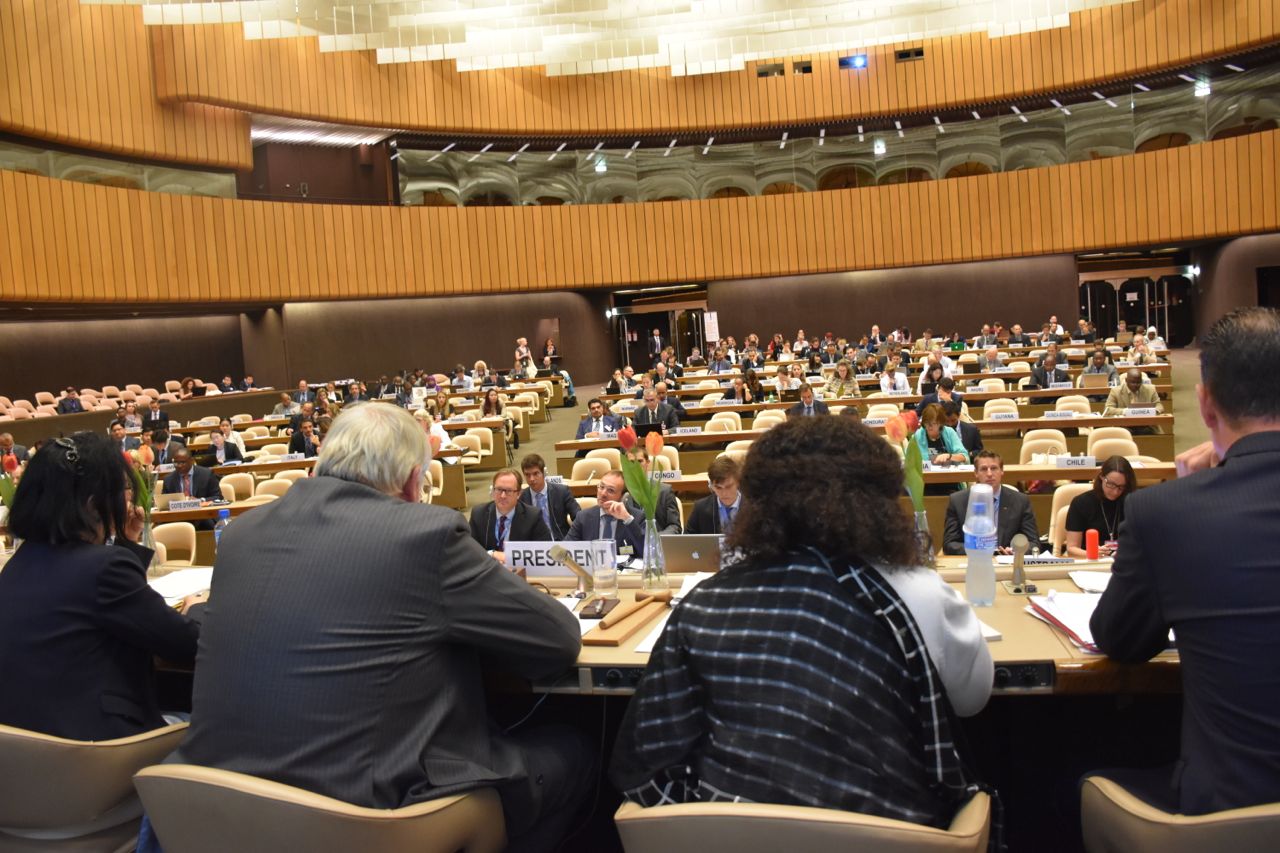
The Dubrovnik Action Plan seeks to increase adherence to the treaty, assist States Parties to develop resourced plans for destroying stocks, clearing contaminated lands, providing risk-reduction education and strengthening national capacity for victim assistance, among other core work. Continue reading
Workshop on National Implementation Measures
In its capacity as Coordinator for National Implementation Measures, New Zealand hosted a workshop for a cross-regional grouping of States on 17 May 2016. Continue reading
African States meet to promote the universalization of the Convention on Cluster Munitions
17 African States met on 4-5 August 2016 in Addis Ababa to discuss challenges and solutions to joining the Convention on Cluster Munitions and step up efforts to reach a cluster munitions free Africa. Continue reading

